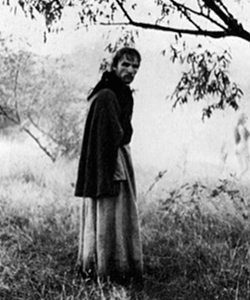Review: Absolute Power (1997)
By then a director at the very top of his game, 1997 saw Eastwood reunite with Gene Hackman, whom he had directed to Oscar glory in Unforgiven. Rounding off the cast with Ed Harris, E.G. Marshall, Richard Jenkins, and himself, Eastwood delivers Absolute Power, a tale of corruption with some of the industry’s strongest senior performers.
Holed up in the secret vault of millionaire philanthropist Walter Sullivan, expert thief Luther Whitney witnesses the murder of Sullivan’s wife when she attempts to defend herself from the violent advances of the intoxicated president. Hunted thereafter by the Secret Service, a suspicious detective, and Sullivan’s hired hitman, Whitney vows to expose the criminals and their corruption.
Coming immediately after three of Eastwood’s best received films to that point of his career was not to be an easy task for Absolute Power, the film which inevitably breaks the pattern of excellence the director had enjoyed for five years. William Goldman’s screenplay of David Baldacci’s novel is a touch weak at times, often relying on ploddingly expository dialogue and rarely straying too far from the standard template of political corruption thrillers. Its narrative is far from innovative, presenting us with a power-abusing chief of state more concerned with maintaining office than with morality, his fiercely loyal assistant willing to do almost anything to shield him from consequence, and a member of the conspiracy quietly dissatisfied with his role in the cover-up. These are characters we have encountered a number of times before in films of this type, and Absolute Power brings little new to them.
Where it thrives is in its dealings with Whitney, opting to bring refined depth to the criminal guided to do what is right even against his own interests by a higher morality. The scene in which Whitney witnesses the crime from behind a two-way mirror is perhaps the film’s best, Eastwood face bathed in darkness, leaving us to see only the painful conflict in his eyes. Should he step forth and intervene, thereby exposing himself mid-burglary, or should he maintain his freedom and allow a woman to be raped? It is moral conflicts like these that elevate Absolute Power above its generic competitors, though the extent to which these are played never quite reaches the level of probing depth one might hope.
As ever, Jack Green’s minimalist lighting scheme amplifies the tension twofold, the regular shots of characters brooding in darkened rooms contributing to these explorations of morality. A further contributory factor to the film’s surpassing of its standard genre formula, minor though it may be, is the relationship between Whitney and his daughter, from whom he is estranged. Early scenes show Whitney seated alone at his table, the empty place to his side emphasized by a cut to his daughter’s photograph. This form of relationship is explored in a subtler — and rather better — manner in the later Million Dollar Baby, but here it nonetheless adds a degree of depth to a traditionally straightforward character. Absolute Power is a political corruption thriller, but its driving factor is its characters and their relationship problems — Harris’ detective finds much-needed companionship in Whitney’s daughter, a nice subplot — and that in itself is something to be admired.
Though an unremarkable film when compared to its immediate predecessors in the Eastwood canon, Absolute Power finds merit in its reliance on character rather than on thrills and chases. Driven by a formidable cast, it is let down by the nature of its narrative source material, delivering a sadly standard take on a tale of political corruption.














 Review: Everything Must Go (2011)
Review: Everything Must Go (2011) Review: Batman Year One (2011)
Review: Batman Year One (2011) Review: Real Steel (2011)
Review: Real Steel (2011) Review: Flight of the Red Balloon (2007)
Review: Flight of the Red Balloon (2007) Review: Midnight in the Garden of Good and Evil (1997)
Review: Midnight in the Garden of Good and Evil (1997)


